Trump says Iran wants to meet 'very badly' after US strikes
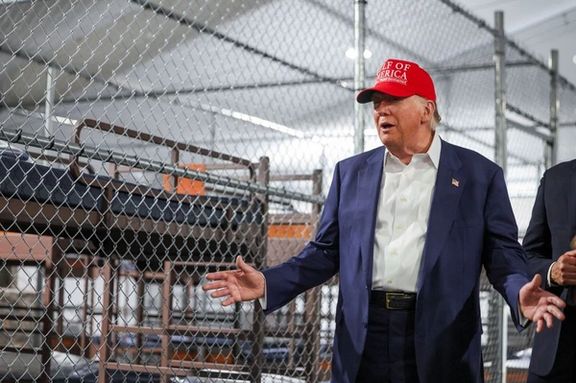
President Donald Trump said on Thursday that the US strikes on Iran had effectively ended hostile rhetoric from Tehran and pushed its leaders to seek talks with Washington.

President Donald Trump said on Thursday that the US strikes on Iran had effectively ended hostile rhetoric from Tehran and pushed its leaders to seek talks with Washington.
"We just did a really great job. And then, of course, you cap it off with the hit, the perfect hit in Iran, where they were talking awfully badly, you know, death to America, death to Israel. They were talking awfully badly," Trump said at a rally in Des Moines, Iowa.
"They're not talking badly anymore, to be honest with you. And we might even meet with them and see," he added.
"They want to meet, they want to meet, and we'll see if we can do something. But they want to meet. I think they want to meet very badly."
'US not looking to hurt Iran'
Earlier in the day, Trump told reporters at Joint Base Andrews that "Iran does want to speak. And I think they'd like to speak to me. And it's time that they do."
"We're not looking to hurt them. We're looking to let them be a country again. They got beat up and, you know, they were they were both exhausted, frankly. But Iran really got beat up. And I think they want to meet. I mean, I know they want to meet. And if it's necessary, I'll do it."
Trump made the remarks after his phone conversation with Russian President Vladimir Putin, where the two sides discussed Iran and Ukraine.
First sanctions after strikes
The US Treasury imposed sanctions on Thursday against a network that smuggles Iranian oil disguised as Iraqi oil and on a Hezbollah-controlled financial institution, the Treasury Department said.
A network of companies run by Iraqi-British national Salim Ahmed Said has been buying and shipping billions of dollars worth of Iranian oil disguised as, or blended with, Iraqi oil since at least 2020, the department said.
They were the first round of sanctions imposed against Iran following the US and Israeli strikes against Iranian military and nuclear facilities.
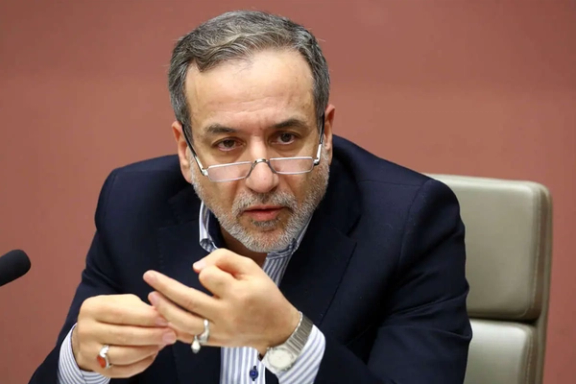
Tehran remains committed to the Nuclear Non-Proliferation Treaty (NPT) and has not ended cooperation with the International Atomic Energy Agency (IAEA), despite new legislation passed in response to Israeli and US military strikes, Iranian foreign minister said Thursday.
“Iran remains committed to the NPT and its Safeguards Agreement,” Abbas Araghchi wrote on X, calling reports of a full suspension “fake news.”
He said that, under the new law passed by parliament, Iran’s cooperation with the IAEA will now be coordinated through the Supreme National Security Council, citing security concerns following Israeli and US attacks on nuclear facilities.
The remarks came after Germany’s foreign ministry said Iran’s move “sends a devastating message” and “eliminates any possibility of international oversight” of its nuclear program.
Araghchi accused Germany of siding with Israel and the US, saying Berlin had supported strikes on safeguarded nuclear sites and “repudiated” its commitments under the 2015 nuclear deal by demanding “zero enrichment” in Iran. “To Iranians, what truly ‘sends a devastating message’ is Germany’s support for unlawful attacks,” he said.
Following the strikes, Iran passed a law suspending cooperation with the IAEA under its safeguards agreement unless its security demands are met. The agency said inspectors remain in the country and it awaits formal clarification.
“The Parliament of Iran has voted for a halt to collaboration with the IAEA until the safety and security of our nuclear activities can be guaranteed,” Araghchi wrote on X following the passage of the law.
Iranian officials have since sharply escalated criticism of the IAEA, with a senior judiciary official threatening Director General Grossi with trial in absentia, and a hardline newspaper calling for his arrest and execution. France, Germany, and the UK issued a joint statement condemning the threats.
US says strikes set back Iran’s nuclear program
The Pentagon said Wednesday that last month’s airstrikes on Iran’s key nuclear sites had set back its program by up to two years.
“We have degraded their program by one to two years, at least,” Pentagon spokesman Sean Parnell said. “All of the intelligence that we've seen leads us to believe those facilities, especially, have been completely obliterated.”
The June 22 strikes hit Fordow, Natanz, and Isfahan with bunker-buster bombs and Tomahawk cruise missiles. Iranian Foreign Minister Abbas Araghchi confirmed that Fordow sustained “serious and heavy damage,” though he insisted Iran would not back down from enrichment, which he described as a source of “national pride and glory.”
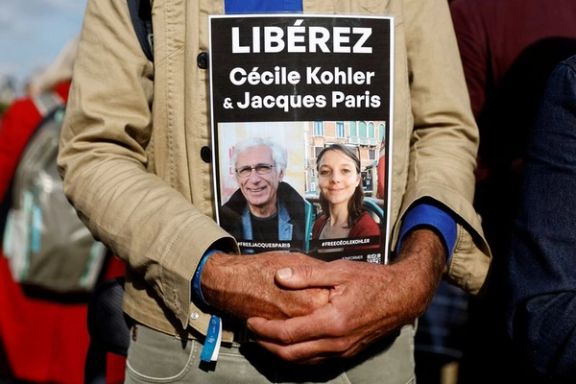
France said on Thursday that its decision to reimpose sanctions on Iran would depend on the release of two French citizens who have been imprisoned in Tehran for three years and now face new espionage charges.
Cécile Kohler and Jacques Paris were formally charged this week with spying for Israel’s Mossad, conspiracy to overthrow the regime, and “corruption on earth,” AFP reported, citing diplomatic and family sources on Wednesday.
Foreign Minister Jean-Noël Barrot said the charges against the two French citizens are “totally unjustified and baseless,” adding: “If it is indeed confirmed that they are facing these charges, we would consider them completely unjustified and unfounded.” He stressed that their release is “an absolute priority” for the French government.
He added, “We have always told our interlocutors from the Iranian regime that any decision on sanctions will be conditional on resolving this issue.” His remarks echoed earlier comments on the possibility of triggering the snapback mechanism under the 2015 nuclear deal.
The two were arrested in May 2022 during a trip to Iran and remain in detention in Tehran.
The pair’s family says they still have no access to independent lawyers. Kohler’s sister told AFP they had seen a judge who confirmed the charges, but no further details were provided. In May, France filed a case against Iran at the International Court of Justice, accusing Tehran of arbitrary detention and violations of international law.
President Emmanuel Macron has previously referred to the pair as “state hostages,” accusing Iran of detaining foreigners to exert pressure on Western states. Iran denies the claim.
Since the end of the 12-day Israeli campaign on June 24, Iran has carried out multiple executions and arrested hundreds on charges of espionage and collaboration with Israel.
Earlier warning tied snapback to nuclear behavior
On Wednesday, Barrot separately warned that France, along with Germany and the UK, could invoke the so-called snapback mechanism under the 2015 Iran nuclear deal if Tehran refuses stricter curbs on its nuclear and ballistic programs.
“With a simple letter in the mail, we can reimpose on Iran a global embargo on weapons, nuclear equipment, banks and insurance,” Barrot told Le Monde. “It is essential that our security interests be taken into account.”
The snapback provision allows remaining participants in the deal to restore UN sanctions lifted under the agreement if Iran is found to be in breach. The United States, which exited the accord in 2018 under President Donald Trump, can no longer trigger the process itself.
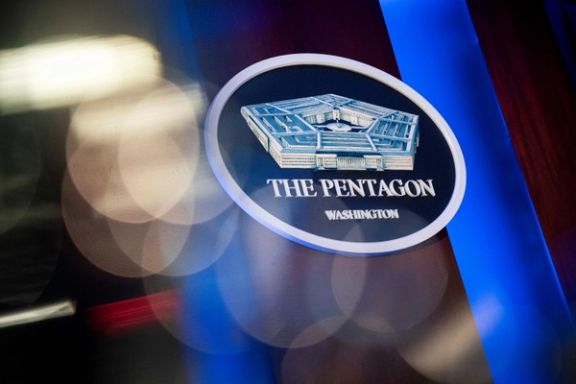
Iran’s nuclear program has been set back by as much as two years following US airstrikes on key sites last month, the Pentagon said on Wednesday.
“We have degraded their program by one to two years, at least,” Pentagon spokesman Sean Parnell told reporters. “All of the intelligence that we've seen leads us to believe those facilities, especially, have been completely obliterated.”
The June 22 strikes targeted Iran’s nuclear sites at Fordow, Natanz, and Isfahan using bunker-buster bombs and Tomahawk cruise missiles, a mission US officials have described as a success.
Iranian Foreign Minister Abbas Araghchi confirmed that the Fordow facility had sustained major damage. “What we know so far is that the facilities have been seriously and heavily damaged,” he told CBS News, adding that the Atomic Energy Organization of Iran is still evaluating the site.
Despite the damage, Araghchi said Iran would not abandon its nuclear efforts. “Our peaceful nuclear program has turned into a matter of national pride and glory,” he said. “People will not easily back down from enrichment.”
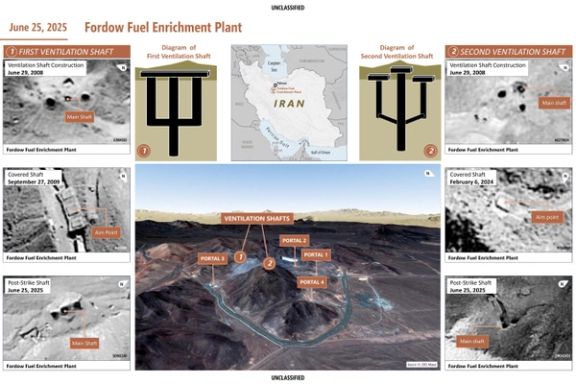
IAEA says enrichment could resume within months
The head of the International Atomic Energy Agency, Rafael Grossi, said on Sunday that Iran retains enough technical capacity to resume uranium enrichment in a matter of months. “They could have, in a matter of months—or even less—a few cascades of centrifuges spinning and producing enriched uranium,” he told CBS.
“Frankly speaking, one cannot claim that everything has disappeared,” Grossi said. “There is still something there.”
Iran’s Foreign Minister Abbas Araghchi echoed that view, saying the program could recover if the government chooses to act. “If there is this will on our part, and the will exists in order to once again make progress in this industry, we will be able to expeditiously repair the damages and make up for the lost time,” he said.
Tehran suspends cooperation with UN watchdog after strikes
Tehran has since enacted legislation suspending cooperation with the IAEA under its safeguards agreement, unless its demands—including guarantees for its nuclear facilities and scientists—are met. The IAEA said on Wednesday it had not yet received formal clarification and that its inspectors remained in Iran.
Meanwhile, Iranian officials and state media have escalated criticism of the agency. A senior judiciary official said IAEA Director General Rafael Grossi could face trial in absentia for “deceptive actions,” while a hardline newspaper called for his arrest and execution. France, Germany, and the UK condemned the threats in a joint statement and reaffirmed support for the agency.
Despite the damage to key facilities, Iran has not ruled out further enrichment. “People will not easily back down,” Araghchi said. President Donald Trump warned earlier that any resumption of enrichment would be met “without question” by further military strikes.
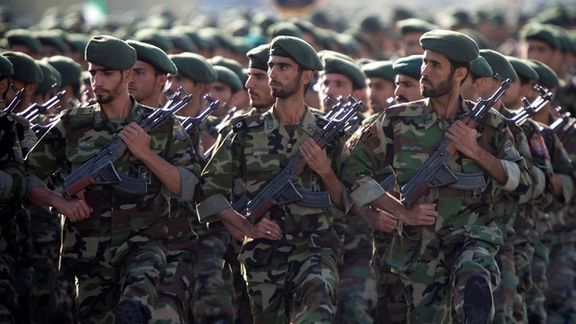
A Belgian parliamentary committee has approved a resolution backing the designation of the Islamic Revolutionary Guard Corps (IRGC) as a terrorist organization, MP Darya Safai said on Wednesday.
Safai, a lawmaker of Iranian descent, said the vote in the foreign affairs committee marks a key step in her long-standing campaign to hold the IRGC accountable for its role in international terrorism and domestic repression.
“Belgium is one of the first countries in Europe to take this step explicitly,” she said on X. “Belgium is leading the way internationally, and it is now up to the European Union to follow through on this stance.”
She added that the resolution also calls for “the unconditional and immediate release of Ahmadreza Djalali” and an end to executions carried out by Iran’s authorities.
Djalali, a Swedish-Iranian academic, was arrested in Iran in 2016 and sentenced to death the following year on charges of spying for Israel, which he denies. In April, Sweden’s foreign minister called on Iran to release him on humanitarian grounds, citing his deteriorating health and harsh prison conditions.
Safai's proposal has previously drawn support from then-Foreign Minister Hadja Lahbib, who said Belgium backed adding the IRGC to the EU sanctions list.
The new Belgian government, led by Bart De Wever, reaffirmed that position in its coalition agreement, which said "The government advocates for the inclusion of the Iranian Islamic Revolutionary Guard Corps on the European Union's list of terrorist organizations."
The IRGC, a powerful parallel military with extensive economic and intelligence roles, was designated a terrorist organization by the United States in 2019 under President Donald Trump. Washington and Ottawa have called on European allies to follow suit.
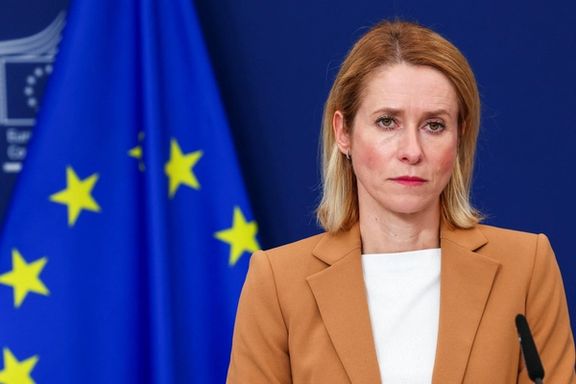
Iran has rebuked the European Union’s top diplomat over her call for the end of Tehran’s nuclear program, warning that European countries and the UK could be excluded from any future negotiations if they insist on such positions.
If the European Union believes Tehran's nuclear program must be ended, then "the participation and role of the European Union and its member states, plus the UK, in any future negotiation would be irrelevant and therefore meaningless,” Iranian Foreign Minister Abbas Araghchi wrote on X.
His statement came in response to a post by EU foreign policy chief Kaja Kallas, who urged Iran to resume talks aimed at ending its nuclear program.
“Negotiations on ending Iran's nuclear program should restart as soon as possible. Cooperation with the IAEA must resume. The EU is ready to facilitate this,” Kallas wrote.
She added that she had discussed the matter with Araghchi in a phone call on Tuesday. “Any threats to pull out of the Non-Proliferation Treaty don’t help to lower tensions,” she said.
Araghchi also accused Kallas of disregarding the provisions of the Nuclear Non-Proliferation Treaty (NPT) "which explicitly affirm the right of all signatories to develop, research, and use nuclear technology for peaceful purposes."
On Wednesday, Iranian state media announced that President Masoud Pezeshkian had enacted a law suspending cooperation with the UN nuclear watchdog, following its approval by parliament and the Guardian Council.
The law mandates a halt to cooperation under the Safeguards Agreement tied to the Nuclear Non-Proliferation Treaty, unless Iran’s demands—such as security assurances for its nuclear sites and scientists—are met.
Despite the suspension of cooperation with the UN’s nuclear watchdog, IAEA inspectors remained on the ground in Iran as of Wednesday, according to a diplomat familiar with the agency’s operations who spoke to the Associated Press.
The IAEA said it is awaiting clarification from Iranian authorities. “We are aware of these reports. The IAEA is awaiting further official information from Iran,” the agency said in a statement.
The US State Department said on Wednesday "it is unacceptable that Iran chose to suspend cooperation with IAEA at a time when it has a window of opportunity to reverse course and choose a path of peace and prosperity."
"Iran must cooperate fully without further delay," State Department spokesperson Tammy Bruce told reporters.
"Iran must fully comply with its safeguard agreements required under the NPT including by providing IAEA with information required to clarify and resolve long standing questions regarding undeclared nuclear material in Iran, as well as provide unrestricted access to its newly announced enrichment facility," Bruce added.